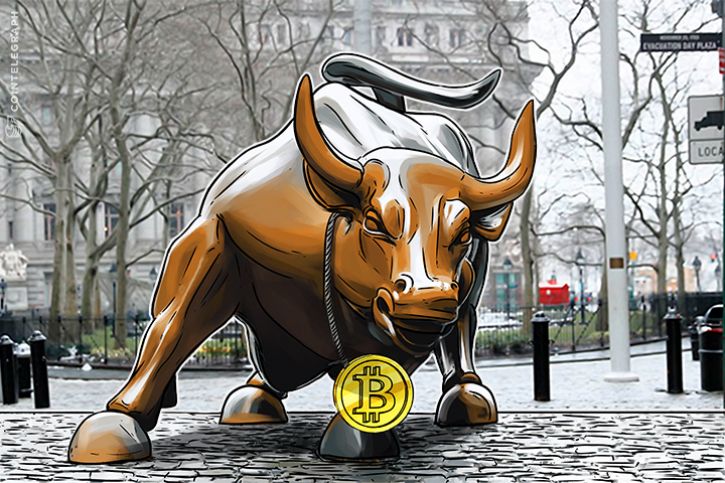
By
Jacob J
The expectation that Bitcoin's price will increase rapidly once institutional money starts flowing into the cryptocurrency, has resulted in a lot of Bitcoin holders eagerly awaiting Wall Street's formal entry in the crypto-markets. But does Bitcoin really need Wall Street?
Fraud in the FX market
Global banks have paid over $10 bln in penalties to settle allegations that they defrauded their clients while engaging in foreign currency trades on their behalf. The banks typically shortchanged their customers by front-running - a process of executing trades for the bank's proprietary trading desk before executing trades on their client's behalf.
They used their knowledge of the client's impending trade to make profits for their bank. The list of banks who have settled include Bank of America, Citi, HSBC and Barclays. The penalties paid by the banks may not be the end of the story - a former HSBC FX trader, Mark Johnson, has been convicted on nine charges of fraud for front-running a $3.5 bln order of Cairn Energy to convert dollars to pounds.
Commodities - affecting main street
Big banks have come to play a large role both in the physical commodities space as well as the market in commodity derivatives. After Goldman Sachs entered the aluminum business in a big way, it led to an increase in prices.
There were allegations that this was not just due to simple supply-demand imbalance, but due to an element of market manipulation as well. It led to traditional users of aluminum, like Coca Cola complaining to the LME about how these actions were impacting it. Goldman has been fined for causing a spike in oil prices as well. More recently, Barclays has been sued for $850 mln by a hedge fund for misusing the knowledge of its trades and ramping up the price of copper.
Libor scandal
If market manipulations in the FX and commodities were performed by individual bankers, manipulation in the Libor market was by banks collaborating together.
Libor, or the London Interbank Offered Rate, is the benchmark rate used to set interest rates in a variety of contracts across the world. It is calculated by polling various banks on the interest rates that they expect to pay on a particular day.
There are a number of derivatives which are based on Libor and banks have manipulated Libor (by inflating or deflating the interest rate they expect to receive) to profit on their trading positions.
The Libor scandal resulted in banks paying record fines - Deutsche Bank paid a fine of $2.5 bln. It also resulted in certain high profile scalps, including the resignation of Marcus Agius and Bob Diamond, the Chairman and CEO of Barclays.
Higher volatility and more scrutiny
While a few early investors might benefit from the rapid increase in price, it is debatable whether Wall Street's entry will have an overall positive impact. It could result in higher volatility and more scrutiny from regulators.
The examples mentioned above don't even talk about mortgage markets, where excessive risk taking by banks resulted in a worldwide financial crisis in 2008.
Given the history of Wall Street's firms in pursuing higher profits, even if it means ignoring their fiduciary responsibilities, Bitcoin could be better off if Wall Street kept away.
Hi! I am a robot. I just upvoted you! I found similar content that readers might be interested in:
https://coss.io/news/article/b8315c14-7d2b-48f9-af32-e6d7830d6bfd
Downvoting a post can decrease pending rewards and make it less visible. Common reasons:
Submit
If wall street invested in bitcoin, it might add to stabilize the price. but when that much money comes into play, it may smell of manipulation as they will be able to adjust the price by going on massive selling and buying campaigns.
Downvoting a post can decrease pending rewards and make it less visible. Common reasons:
Submit